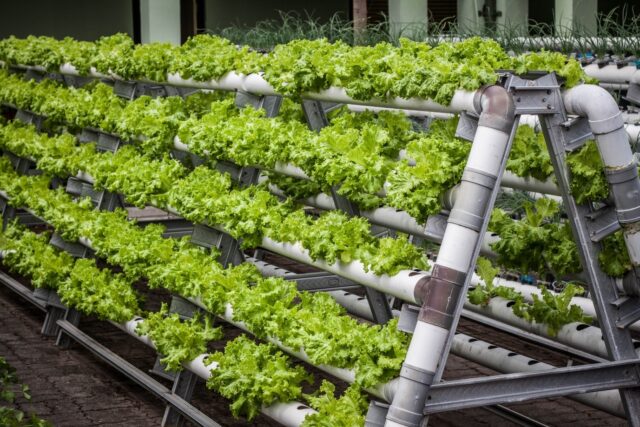As such a critical industry, it is always interesting to read about the latest developments in farming and agriculture. Right now, vertical farming is transforming the industry and could be the future of food production with the world’s population expected to grow to a staggering 9.7 billion by 2050. So, what exactly is vertical farming and how could it change farming as we know it?
What is Vertical Farming?
The topic of vertical farming was recently explored by Marsh Commercial, providers of farming insurance, who outlined vertical farming as an indoor farming process with plants growing on vertically stacked surfaces under controlled conditions. This would allow farmers complete control over light, climate, irrigation etc which would enable them to grow seasonal crops throughout the year. This means that as opposed to farming on a single level, such as on a field, food could be produced in stacked layers integrated into structures such as a skyscraper.
Vertical Farming Benefits
Vertical farming is taking off in the UK and provides many solutions to a few of the biggest challenges facing agriculture today, including climate change and the growing and ageing population. Essentially, this is because vertical farming allows food products to maximise space and optimise the environment for food production allowing for greater yield per square mater, low water consumption and a lack of soil or pesticide.
Vertical Farming in the UK
Additionally, vertical farming is well-suited to island economies and those that import a lot of produce. Security of supply is incredibly important when it comes to the food chain in these places and vertical farming can strengthen this greatly, which in the UK is a huge plus when you consider the pandemic and Brexit. As explained by The Grocer, food supply chains are under more scrutiny than ever right now and vertical farming could be the solution.
Projects
FWI revealed that there are a number ofbig vertical farming projects announced in the UK lately, including Ocado sinking in £17 million in the sector in 2019 and an Edinburgh-based company with ambitions to develop 40 vertical farming sites (which 5 already in place).
Just Food also recently revealed that popular UK sausage and vegan food manufacturer Heck has also partnered with a vertical farming specialist Vertical Future to install a vertical farm in its headquarters. The farm will focus on micro-crops, which they believe could allow them to create new “unique and interesting flavours” too.
It is fantastic to see innovative and sustainable developments like vertical farming growing in the UK, especially in troubling times like this where there is so much uncertainty particularly when it comes to food supply and there being many challenges in the agricultural industry. Vertical farming is certainly the future and it is quickly becoming the norm in the UK with many big names realising the potential for this innovative form of food production.




